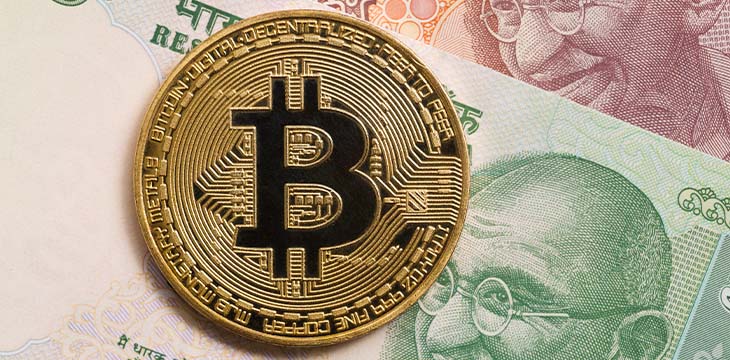|
Getting your Trinity Audio player ready...
|
The deputy governor of the Reserve Bank of India (RBI), T. Rabi Sankar, has confirmed that India’s central bank digital currency (CBDC) will be introduced during the 2022-2023 fiscal year—although the rollout will be completed gradually.
Sankar made the remarks while addressing a press conference this week, the Economic Times reports. He added that the approach is being taken to ensure there is no disruption in the financial and banking system.
“Process of introduction of CBDC will be gradual so that there is no disruption of the financial and banking system,” Sankar said.
His statement echoes the RBI’s revelation in its annual report released earlier this month. In the report, the RBI said it would follow a “graded approach” to introduce the digital rupee that involves stages including a proof-of-concept, pilots, and launch.
“The Reserve Bank proposes to adopt a graded approach to the introduction of CBDC, going step by step through stages of Proof of Concept, pilots, and the launch,” the report said.
At the time, the RBI also noted that it had been studying the pros and cons of releasing a digital rupee. Hence, the CBDC’s design will be in “conformity with the stated objectives of monetary policy, financial stability and efficient operations of currency and payment systems.”
Is India looking to replace digital assets with CBDCs?
The government of India first laid the legal framework for the development of the CBDC in its Union Budget in February. The budget also introduced the 1% TDS and 30% income tax regimes for digital assets.
The move to tax digital assets heavily has been having the effect of lowering digital assets transactions. It appears to be the desired effect of the government.
Several government officials have often criticized digital assets and associated them with various risks to the Indian economy. In recent statements before parliament, officials of the RBI warned that digital assets could dollarize the Indian economy, thereby threatening the country’s sovereign interest.
Similarly, the RBI Governor Shaktikanta Das recently stated that digital currencies have no value. Sankar shares the same sentiment, noting that CBDCs could potentially replace digital assets and are safer for consumers as they are backed by the government.
The government’s stance has left digital currency investors with uncertainty as to whether the country may still introduce a ban on the industry or not. A ban on the industry accompanied by the rollout of a CBDC will be akin to the move China made last year.
To learn more about central bank digital currencies and some of the design decisions that need to be considered when creating and launching it, read nChain’s CBDC playbook.
Watch: The BSV Global Blockchain Convention panel, CBDCs and BSV Blockchain

 02-18-2026
02-18-2026 




